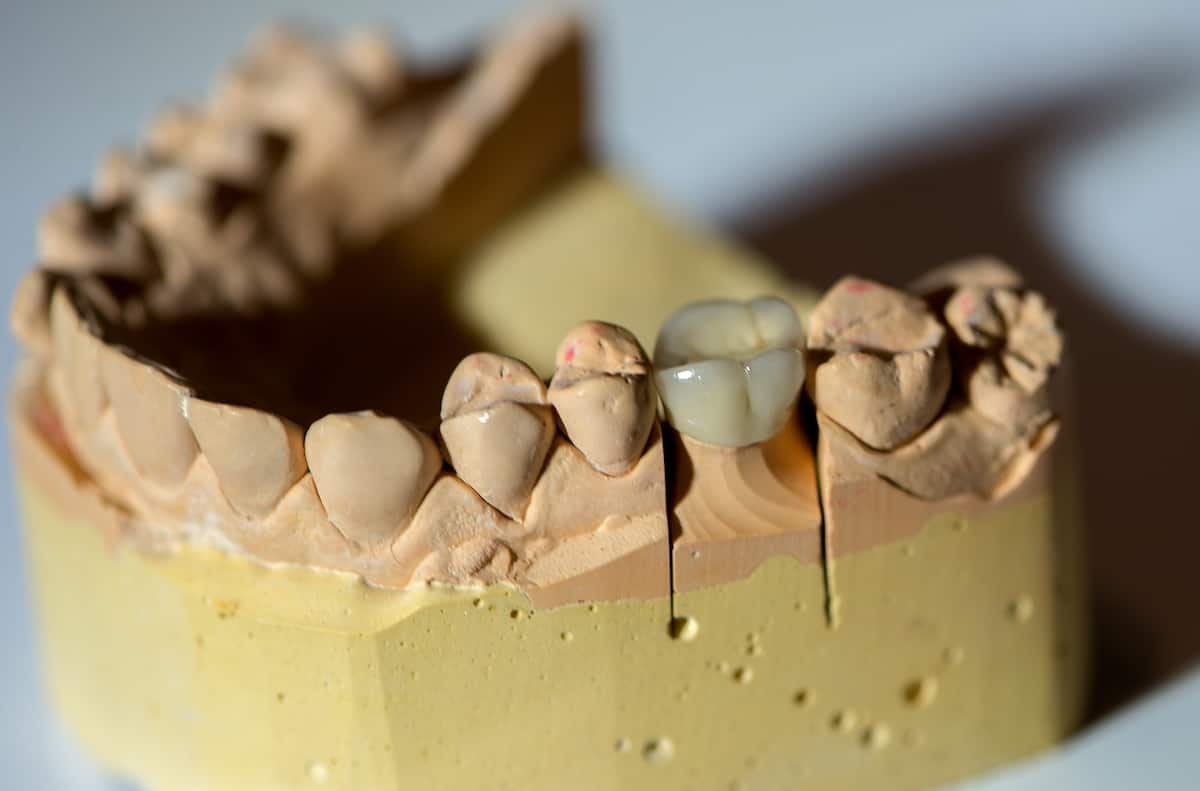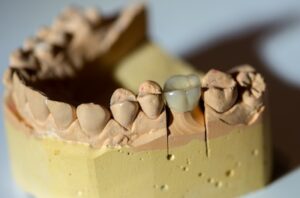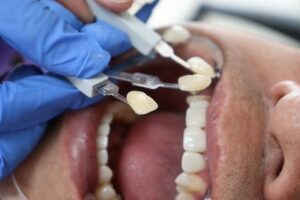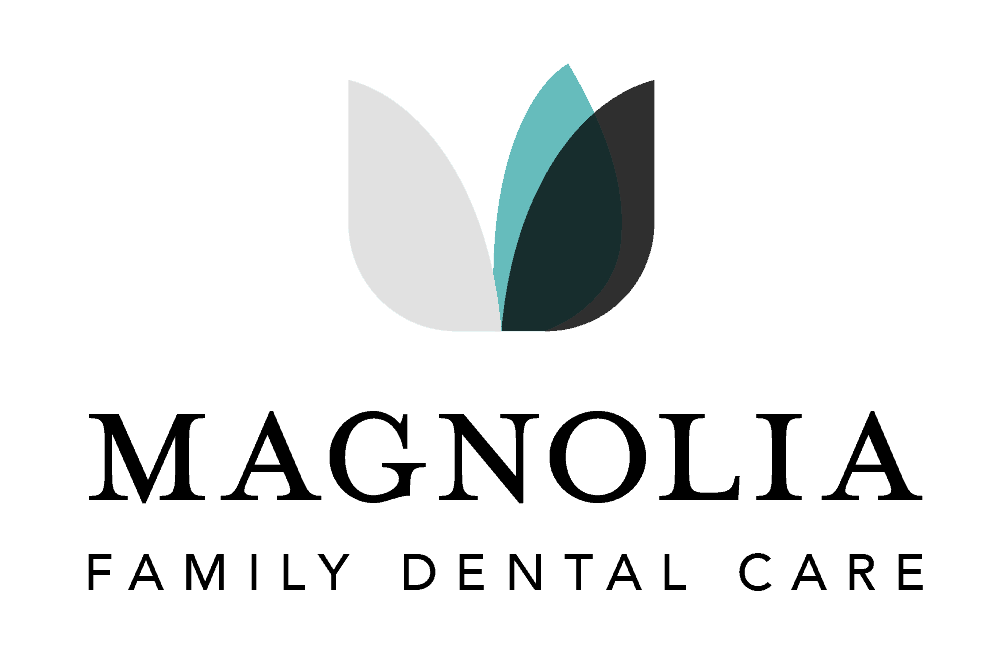
28 Mar What To Do When Your Dental Crown Falls Off
Identifying the Cause of a Detached Dental Crown
Dental crowns, those protective caps on damaged teeth, can sometimes come loose. Several factors contribute to this issue.
A poor fit between the crown and tooth increases the likelihood of the crown falling off. Ensuring your dentist achieves a precise fit is important for keeping the crown in place.
Sticky and hard-to-chew foods can also dislodge crowns. They can pull and push the crown, causing it to loosen and eventually fall off.
Teeth grinding, or bruxism, subjects your teeth to constant pressure, straining both natural teeth and restorative work like crowns. Over time, this pressure can wear down the bonding or the crown itself.
Inadequate bonding can also lead to crown loss. If the dental cement fails to hold the crown securely to the tooth, the crown may come off.
Lastly, decay can compromise the tooth’s structure beneath the crown, weakening its support and allowing the crown to detach.
Maintaining dental crowns requires a combination of care, caution, and communication with your dentist. Avoiding hard or sticky foods, protecting your teeth from grinding damage, and ensuring a good fit and strong bond can help prevent unwanted crown loss.
Dental crowns require gentle treatment. With proper care, you can help your crown last.

Immediate Actions Post-Crown Detachment
Proper daily care is important for keeping your dental crown secure and the underlying tooth healthy. Here’s a simple approach to looking after your dental crowns.
Brushing and Flossing
Dental crowns require regular cleaning, just like the rest of your teeth. Brush gently yet thoroughly, at least twice a day, with fluoride toothpaste. Pay attention to the area where the gum meets the crown, as plaque can accumulate there. When flossing, be gentle around your crown to avoid dislodging it.
Choosing the Right Cleaning Dental Crown Tools
An interdental brush can effectively clean the tighter spaces around the base of the crown where it meets the gum line. This small brush helps prevent plaque buildup and decay in the adjacent teeth.
Avoiding Harmful Habits
Nail biting, chewing on pens, or using your teeth as tools can jeopardize the integrity of your dental crown. These habits put unnecessary pressure on your crown, potentially leading to damage or displacement. Avoid these activities to maintain your crown’s condition.
Attending Regular Dental Check-Ups
Regular check-ins with your dentist are essential for the well-being of your crown and overall dental health. Dentists can identify potential issues like crown loosening, decay under the crown, or gum disease early on. These appointments serve as preventive measures to avoid more serious problems.
Addressing Dental Crown Issues Promptly
If you notice any changes in how your crown fits, if it becomes loose, or if you experience discomfort around the crowned tooth, contact your dentist promptly. Swift action can prevent a minor issue from escalating into a more significant dental problem.
By incorporating these simple steps into your daily routine, caring for your dental crowns becomes a seamless part of maintaining your oral health. Preserving your crown helps ensure your smile remains healthy and functional.

Making an Emergency Dental Crown Appointment
When your dental crown falls off, it’s important to act promptly. Here’s a guide to securing an emergency dental appointment to resolve this issue without delay.
- Collect Your Crown: Carefully pick up your crown. If it’s intact, this could be beneficial for your upcoming dental visit.
- Clean and Store Your Crown: Gently rinse the crown with lukewarm water. Avoid using soap or scrubbing it harshly. Once cleaned, store it in a small container or plastic bag to protect it until your appointment.
- Avoid DIY Fixes: Refrain from attempting to reattach the crown yourself using household adhesives. These materials can further damage the crown or your tooth.
- Contact Your Dentist: Call your dentist’s office as soon as possible. Explain the situation clearly, providing details about the state of the crown and your tooth. If the office is closed, leave a voicemail or follow their emergency contact instructions.
- Convey the Urgency: Explain if you’re experiencing pain, if the tooth is sharp or jagged, and if you’re unable to eat or drink comfortably. Mention if you’ve saved the crown, as this could make your case more urgent.
- Consider After-Hours Care: If your dentist can’t see you promptly and you’re experiencing significant discomfort or risk to your oral health, look for an emergency dental service in your area.
- Follow Pre-Appointment Instructions: Your dentist may provide specific instructions to care for your exposed tooth until your appointment, such as using dental wax or temporary cement from a pharmacy. Follow these instructions carefully.
- Be Mindful of Eating and Drinking: Until your appointment, stick to soft foods and avoid using the part of your mouth where the crown came off. Steer clear of very hot or cold beverages to minimize sensitivity.
- Come Prepared: Bring the crown with you to your appointment, along with any notes or questions you may have about the incident and future prevention strategies.

Securing an emergency dental appointment quickly after a crown falls off is important for the health of your tooth and to avoid further discomfort or complications. By following these steps, you can ensure you receive the necessary help promptly.


Sorry, the comment form is closed at this time.